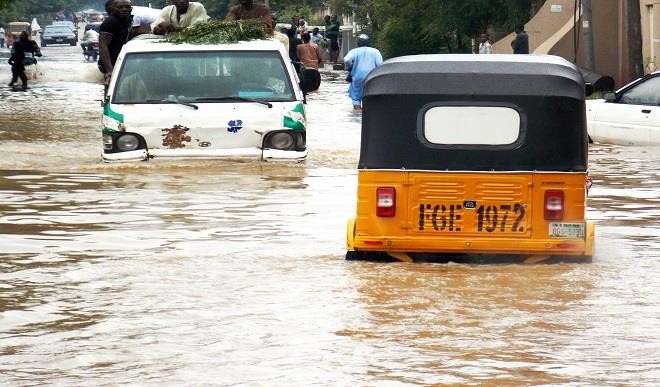The need to revive compulsory sanitation exercise
Sanitary conditions in most urban cities and rural areas have deteriorated due to unsustainable hygienic measures. It is for this reason that experts have tasked local government authorities, institutions, agencies and stakeholders to pay more attention to the issue of sanitation in their surroundings. Sustainable waste management, a precursor to good sanitation, is still a […]


Sanitary conditions in most urban cities and rural areas have deteriorated due to unsustainable hygienic measures. It is for this reason that experts have tasked local government authorities, institutions, agencies and stakeholders to pay more attention to the issue of sanitation in their surroundings.
Sustainable waste management, a precursor to good sanitation, is still a mirage because the federal government is yet to start the conversion of Nigeria’s industrial, municipal and domestic waste to wealth.
Some stakeholders have identified revival of the compulsory monthly sanitation exercise, where people are made to clean their environment on a particular day of the month, as a step towards achieving a better and cleaner environment in the markets, streets and homes.
During President Muhammadu Buhari’s first stint in governance as a military head of state, he instituted the mandatory monthly environmental sanitation exercise which took place from 7.00a.m. to 10.00a.m. on every last Saturday of the month.
Environmental sanitations, according to WHO are efforts or activities aimed at maintaining a clean, safe and pleasant physical environment through water supply, excreta and sewage disposal, solid waste disposal, and ensuring the safety of the environment in all human settlements towards the promotion of social, economic and physical well-being of all sections of the population.
Some residents who spoke to Daily Trust said the exercise, which many clamour for its return, is presently being adopted in states like Lagos and Edo and that it may go a long way in ensuring a cleaner environment if adopted nationwide.
Sule Ojonugwa,an educationist, said when the exercise was in place, there were no indiscriminate refuse dumps on streets as it is now, saying people were mindful of where they dump their wastes because they are responsible for the cleaning of the environment.
He said if the federal government could adopt the exercise even if it is on two or three hours basis on a set day, the environment will look much cleaner and healthier.
A trader in Jikwoyi, Hyacinth Ogbulonu, said though the exercise is not being cherished by lots of traders because it is considered half day for them, it will be a good one in checking people’s attitude towards waste disposal and cleanup.
Ogbulonu noted that he takes out time to clear the gutter around his shop, which also motivates his neighbours to do same, and at the end they all get the place cleared.
“The exercise can be revived and strict measures imposed without restriction of movement, but the truth remains that it will be more effective if movements are restricted,” he said.
Another trader, who simply gave her name as Jane, said if government can bring back the exercise, it will be good because people will be on ground to help government officials clean the environment.
The Coordinant-General of Environmental Ethics & Safety Corps (ESCORP), Mr. Emenike Eme, told Daily Trust that the corps would always stand for the enforcement of compulsory sanitation exercise nationwide.
Eme noted that it is in the human nature for people not to do what is expected rather they do that which they know will be inspected.
“If we know this and we don’t want to enforce monthly or regular sanitation exercise, we are not helping ourselves because if we don’t bring it back, diseases and infections will continue to increase in our country,” he said.
He pointed out that there is high resistant malaria caused by mosquito bite, saying “with dirty environment, we will have more than mosquitoes bite and then we will waste money attempting to cure.”
All right thinking persons according to the coordinate General, no matter their status in life or what excuse they have, should consider the interest of the masses more important than any other thing.
“Let us help ourselves and bring back the monthly compulsory sanitation exercise,” he said.
According to a report tagged ‘Conceptual Modelling of Residents’ Environmental Sanitation Behaviour in a Nigerian Metropolis’ by a lecturer with the Obafemi Awolowo University, Ile-Ife, Oluwole Daramola, the major determinant of residents’ environmental sanitation behaviour was the mandated environmental sanitation exercise.
Daramola said despite the positive contributions of the monthly environmental sanitation exercise, residents need to know the importance of daily environmental sanitation exercise, especially at the household and neighbourhood levels.
Despite the calls, the federal government is yet to make a statement on whether the policy will be revived or not, but there are feelers that work is in progress on the issue of sanitation.
